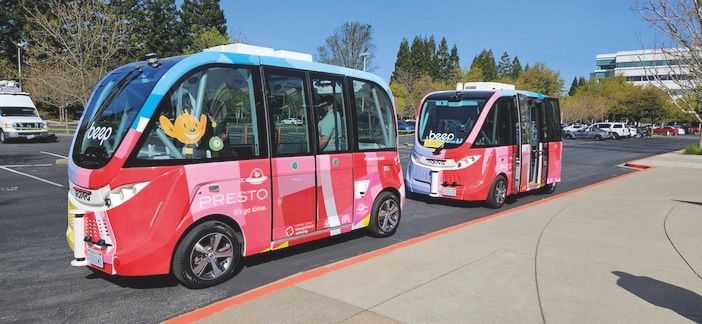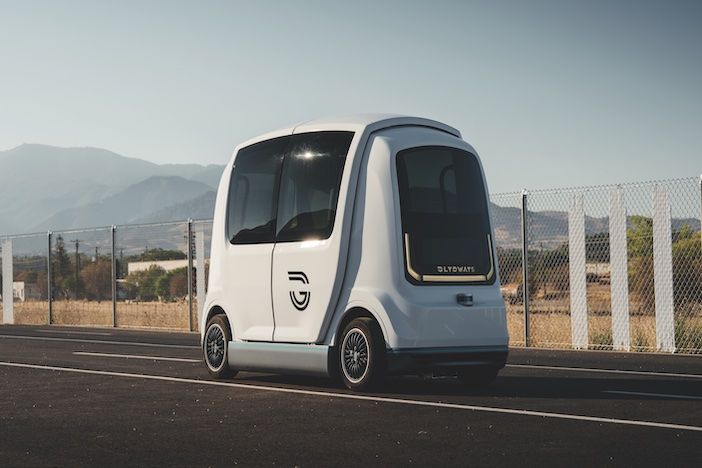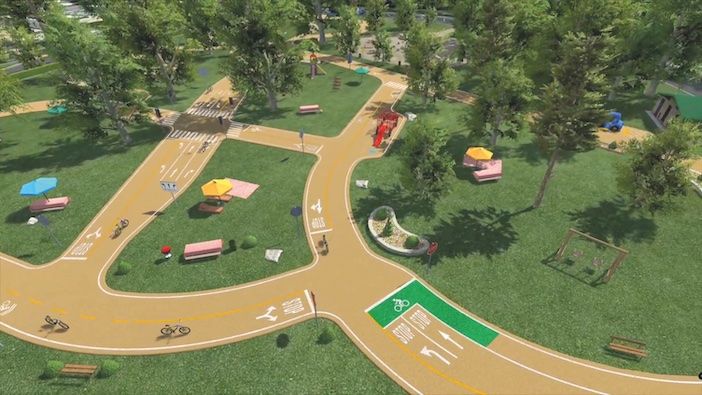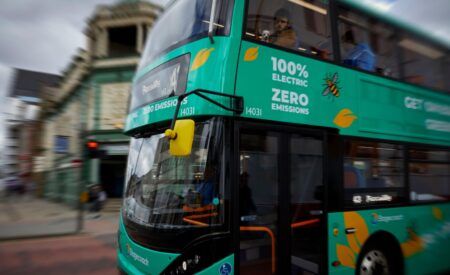Contra Costa Transportation Authority may only represent one county in California, but it has always punched above its weight when it comes to mobility innovation. Tom Stone catches up with its current director Timothy Haile, as he prepares for his trip to Europe for Intertraffic Amsterdam, to find out more about how he is turning research into real-world deployments
When Tim Haile started his new job as executive director of Contra Costa Transportation Authority (CCTA) in California, he had some big shoes to fill. His predecessor was something of an industry legend – Randy Iwasaki, the former director of Caltrans and national champion of innovation in transportation.
Nevertheless, Haile was the obvious heir to the throne. When he stepped up at the end of 2020 he had already been serving as Iwasaki’s deputy executive director at CCTA since 2017. Prior to that he’d worked in transportation for around 20 years, both in the private sector and at Caltrans. “Randy has been a great mentor of mine for years,” says Haile. “Learning about innovation and how to deploy these new technologies has been really exciting for me.”
Since he took the helm Haile has proved that he is a worthy successor to Iwasaki’s legacy, continuing Contra Costa’s reputation as one of the most forward-thinking counties in the USA in mobility, while also forging forward with on-the-ground projects that are beginning to put cutting-edge technology into everyday public use.
“We have a front-row seat to the future through GoMentum Station – we’ve been testing shuttles there for years”
“I think the era of Randy was about developing an innovative vision,” says Haile. “We did some great deployments, we tested the first, shared autonomous vehicle on public roads, and there were some great demonstrations and pilots. Under my leadership, I want to take that work and build upon it and move from not just testing and pilots and demonstrations, but to actual deployment.”
Despite overseeing a transportation system in a prosperous corner of the most car-centric nation on earth Haile is not shying away from the need to diversify by promoting public transit and multimodality, with the real needs of citizens at the heart of all his thinking.
“My vision is to build a better-connected transportation system,” says Haile. “I want to take a more people-centred approach and to really focus on what people need. So, we’re looking closely at first-and-last mile.”
Hey Presto!
One solution that joins the dots in Contra Costa is being delivered via an app called Presto. It can be used to hail an autonomous shuttle at the San Ramon Transit Center, linking two existing bus routes using a fully on-demand autonomous service, open to the public 7:30am to 5:30pm.

This deployment has been supported by years of research in the county, which is home to the GoMentum Station, the nation’s largest secure facility dedicated to connected and automated vehicle testing.
“We have the front row seat to the future through GoMentum Station,” says Haile. “We’ve been testing autonomous shuttles there for years, so we know how this technology works and how it operates and we know how to deploy it safely.”
MaaS market
Haile’s vision is to make the Presto app more than just a shuttle hailer, and add more services such as bike share and carpooling, using the mobility-as-a-service model.
“This app is a public-sector-built mobility-as-a-service platform,” says Haile. “We want to make sure that the platform is focused on our goals of providing convenient, efficient, and cost-effective mobility options, making sure we’re addressing equity, making sure people have access to mobility in areas where there might be no transit options, and in low-income, disadvantaged communities.
“I think it’s a good model, because people are afraid that the Ubers and Lyfts of the world are going to compete against transit. So I think if the public sector has more control over how this gets rolled out we can better support public transportation.”

Haile sees the current climate as one in which it is more important than ever to support public transit – ridership levels in the Bay Area are still struggling to recover to pre-pandemic levels, creating an approaching ‘fiscal cliff’.
“We are building a network of shared mobility hubs,” says Haile. “So you can walk or bike from your home to a hub where you have a suite of what I call personalized mobility options – it’s the gateway to seamless travel in Contra Costa County.
“Most of the trips in Contra Costa are less than two miles. Everyone’s taking short trips in their car. If we can create a network that’s reliable and convenient, then people won’t use their car and we can reduce congestion. That’s the ultimate goal – to reduce congestion and reduce greenhouse gas emissions.”
All Haile!
Haile leads by example when it comes to leaving his car at home – he rides his bike to work every day and regularly takes public transport. He is also leading industry opinion by speaking at major events (he will be making the trip to Europe in April for Intertraffic Amsterdam, see Haile in Amsterdam, above) and public opinion via the power of podcasting (he presents his own show On The Patio, to spread the word about CCTA’s work).

“Because one big component of technology is public acceptance – a podcast provides a way to connect with the general public, in terms of what’s new and exciting in transportation.”
And it seems there’s always something new in mobility in Contra Costa, an observation Haile attributes to the CCTA’s agile nature. “We are only a small organization – only 20 people,” he says. “We like to call ourselves a ‘peashooter’ organization – we’re small, but we’re mighty and we get a lot done. Something like the GoMentum Station is very unique, but I think that’s typical of us – it’s part of our innovative culture.”
Haile at Intertraffic Amsterdam
Tim Haile will be visiting Intertraffic Amsterdam this year and speaking alongside his former boss and mentor Randy Iwasaki in the event’s Summit Programme. Their session, which will also feature presentations from Davteq’s Ali Mortazavi and Nissan’s Liam Pedersen, is entitled Data-Driven Solutions in Connected and Automated Driving and will take place on Tuesday April 16 at 10:30am in Intertraffic Theatre 3, Hall 7.
This article was first published in the March 2023 edition of TTi magazine





